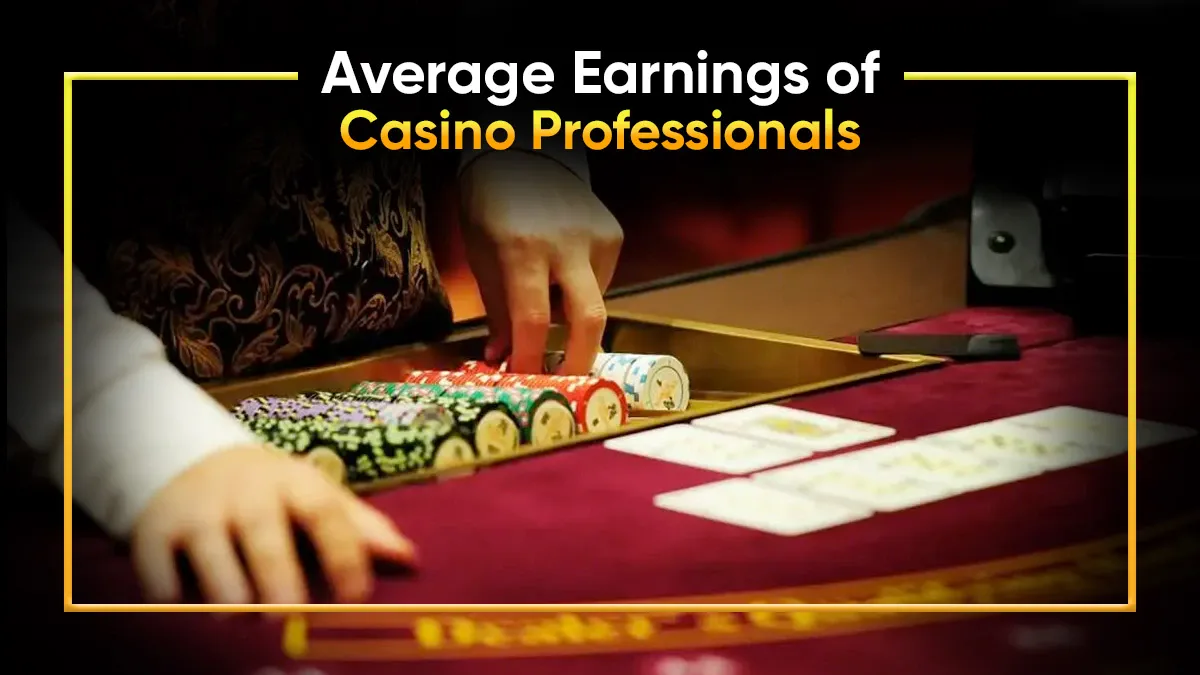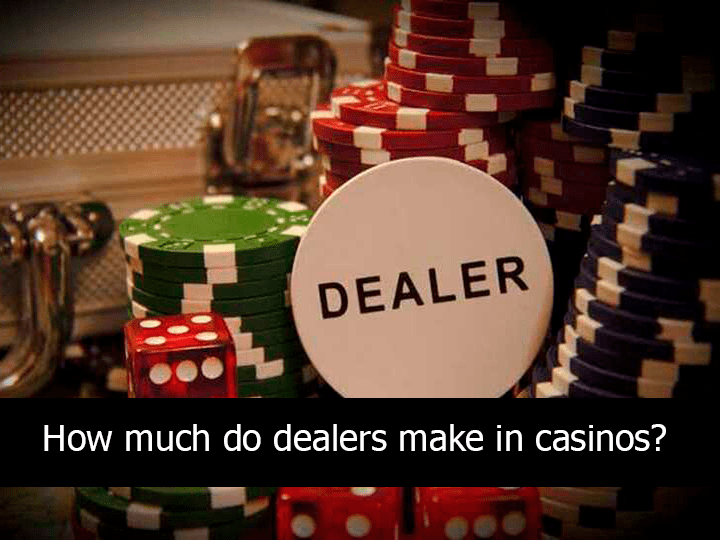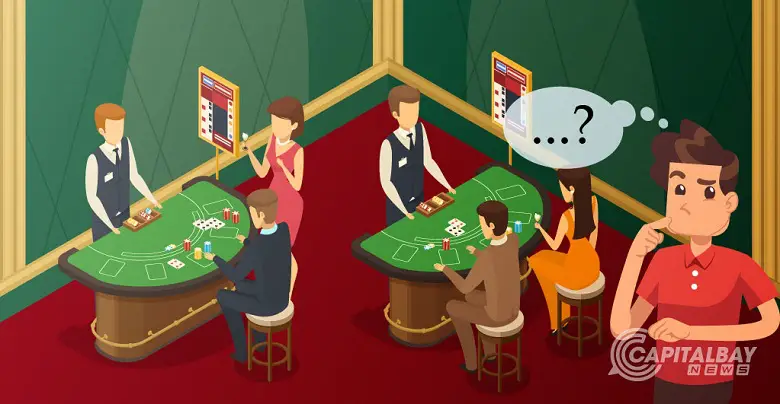How Much Does A Poker Dealer Make

The flashing lights, the clatter of chips, and the intense gazes across the felt – the world of poker holds an undeniable allure. But behind every winning hand and dramatic bluff stands a crucial figure: the poker dealer. While the players chase fortunes, dealers navigate the intricacies of the game, ensuring fairness and maintaining order. Just how rewarding is this pivotal role?
The earnings of a poker dealer are a multifaceted equation, influenced by location, experience, the specific casino or cardroom, and, most significantly, tips. While base wages often hover near minimum wage, the bulk of a dealer's income derives from the generosity of winning players. This article delves into the complex reality of poker dealer salaries, examining the factors that contribute to their overall compensation and offering a realistic outlook on the profession.
Base Salary: The Foundation
The starting point for any poker dealer's income is their base salary. This hourly wage is typically set by the casino or cardroom and is often close to the state or local minimum wage. According to data from the Bureau of Labor Statistics (BLS), casino gaming services workers, which includes poker dealers, earned a median hourly wage of $14.42 in May 2023.
However, this figure is a broad average and doesn't reflect the specifics of poker dealing. Websites like Glassdoor and Indeed offer more focused estimates, suggesting average base salaries for poker dealers in the range of $20,000 to $30,000 annually. The base wage is often a small fraction of a dealers overall compensation.
The Tip Factor: Where the Real Money Lies
Tips are the lifeblood of a poker dealer's income. In most casinos and cardrooms, it is customary for winning players to tip the dealer, typically a small percentage of the pot. The frequency and amount of these tips can vary dramatically depending on several factors.
Game stakes are a crucial determinant. Higher-stakes games, where players are wagering larger sums of money, tend to generate significantly larger tips. The atmosphere of the cardroom also plays a role. A busy, well-run room attracts more players, leading to more opportunities for tips.
A dealer's skill and personality can also influence their tip earnings. Dealers who are friendly, efficient, and knowledgeable about the game are more likely to receive generous tips. Building rapport with players and creating a positive atmosphere at the table can translate directly into higher earnings.
"A good dealer is like a good host," explains Maria Rodriguez, a veteran poker dealer with over 15 years of experience. "You have to be professional, but also engaging. People are more likely to tip someone they enjoy being around."
Location, Location, Location: Regional Variations
Geographic location has a significant impact on poker dealer salaries. Cities with a thriving casino industry, such as Las Vegas, Atlantic City, and Reno, generally offer higher earning potential. The cost of living in these areas is also often higher, which can offset some of the gains.
Smaller cardrooms in less prominent gambling markets may offer lower base wages and fewer opportunities for tips. Furthermore, state laws regarding minimum wage and tip pooling can influence a dealer's take-home pay.
For example, a poker dealer in Las Vegas might earn significantly more than a dealer in a small, rural cardroom. The demand for dealers, the density of casinos, and the average player's bankroll will all affect income potential.
Experience and Skill: Climbing the Ranks
Like any profession, experience plays a role in a poker dealer's earning potential. More experienced dealers are generally more efficient, knowledgeable, and better at managing the game. This can translate into more tips and opportunities to work in higher-stakes games.
Some casinos offer specialized training programs for dealers, providing them with the skills and knowledge necessary to excel in the role. Dealers with certifications or specialized skills, such as proficiency in multiple poker variants, may command higher salaries.
Johnathan Lee, a cardroom manager at a casino in California, notes, "We value experienced dealers who can handle high-pressure situations and maintain the integrity of the game. They're worth their weight in gold."
The House Advantage: Casino vs. Cardroom
The type of establishment where a dealer works can also affect their earnings. Large casinos with a wide variety of games and high player volume may offer more consistent opportunities for tips. Smaller, independent cardrooms might offer a more intimate atmosphere and the chance to build closer relationships with players.
However, the benefits packages offered by casinos and cardrooms can vary significantly. Some casinos offer health insurance, paid time off, and other benefits, while smaller cardrooms may not. Dealers should carefully consider these factors when evaluating job offers.
Tip pooling, where dealers share a portion of their tips with other staff, is a common practice in some establishments. While this can provide a more stable income, it can also reduce the overall earning potential for high-performing dealers.
Beyond the Chips: Other Forms of Compensation
While tips and base salary are the primary sources of income for poker dealers, there may be other forms of compensation to consider. Some casinos offer bonuses or incentives for exceptional performance. Dealers may also receive complimentary meals, discounts on hotel rooms, and other perks.
Additionally, some dealers supplement their income by teaching poker lessons or working as private dealers for home games or corporate events. These opportunities can provide additional income and allow dealers to leverage their skills and expertise outside of the traditional casino environment.
The Future of Poker Dealing: A Changing Landscape
The future of poker dealing is subject to the evolving landscape of the gambling industry. The rise of online poker and the potential for automated dealing technologies pose challenges to the traditional role of the poker dealer. While automation may eventually impact some aspects of the job, the human element of poker dealing, such as interaction with players and maintaining a fair and enjoyable game, is likely to remain important.
The demand for skilled and experienced poker dealers is expected to remain relatively stable in the coming years. As long as live poker remains a popular pastime, there will be a need for qualified individuals to manage the game.
"The personal touch is key," says Rodriguez. "You can't replace the interaction between a dealer and a player with a machine." Ultimately, a poker dealer's earning potential is the sum of their location, skills, personality, and the ever-present luck of the draw.


















